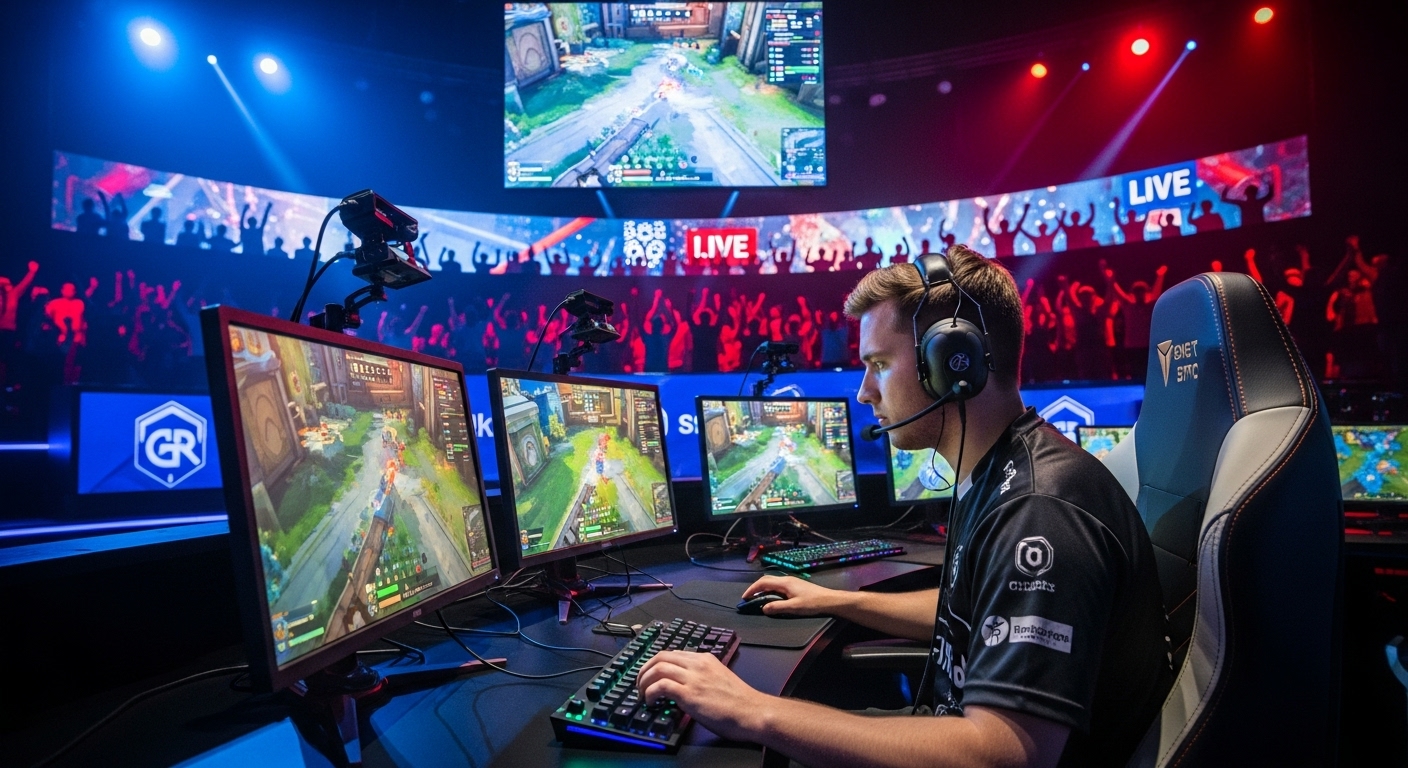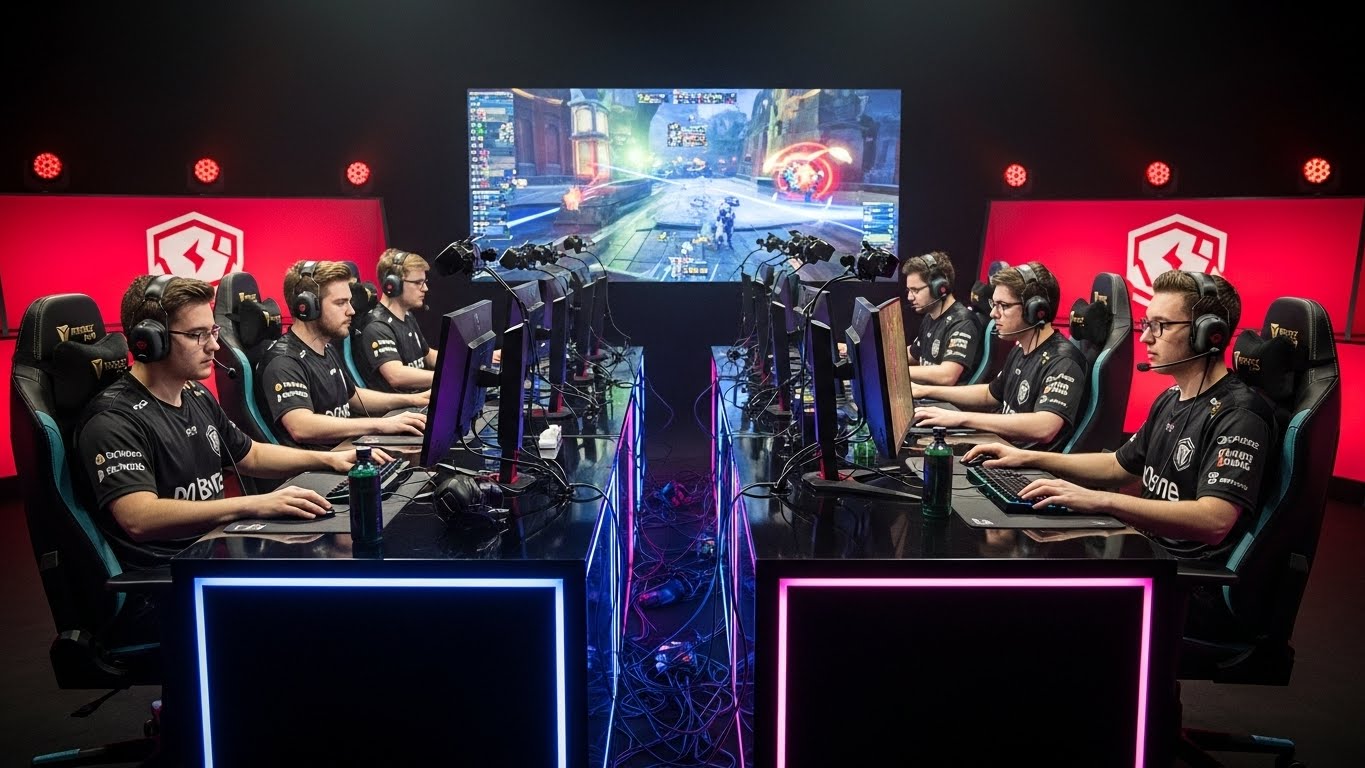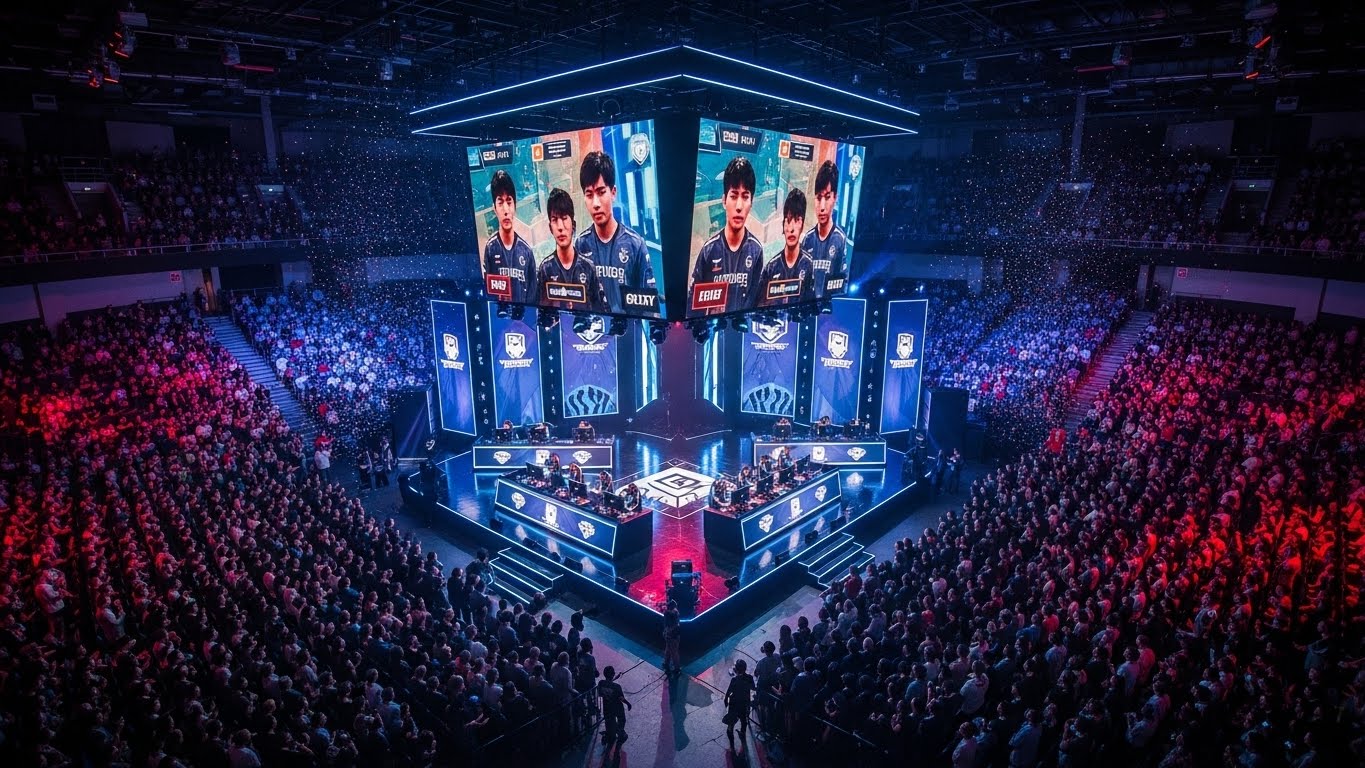Over the past two decades, the world of sports has undergone a massive transformation. While traditional sports like football, basketball, and tennis still command huge audiences, a new digital contender has risen to global prominence — esports. Once dismissed as a niche pastime, competitive video gaming has now become a multi-billion-dollar global phenomenon that’s reshaping how people view, play, and consume sports.
Esports has evolved from small gaming competitions in local arcades to sold-out arenas, international sponsorship deals, and professional players earning millions. This rapid rise has not only expanded entertainment possibilities but also changed the definition of sports itself. The traditional sports industry is adapting and integrating with esports in fascinating ways, leading to a blend of physical and digital athleticism.
This blog explores how esports is changing the sports industry — from economic influence and fan engagement to player development, technology, and the future of competition.
The Rise of Esports as a Global Power
Esports, short for electronic sports, refers to organized video game competitions where professional players or teams compete for prizes and recognition. It started gaining traction in the late 1990s and early 2000s with the growth of games like Counter-Strike, StarCraft, and Dota. However, it was the rise of streaming platforms and high-speed internet that catapulted esports into mainstream attention.
Today, esports tournaments attract millions of viewers online and offline. Games like League of Legends, Dota 2, Valorant, and Fortnite have become global entertainment staples, drawing attention from both gamers and traditional sports fans. Major events are broadcast live to global audiences, featuring professional commentary, analysis, and production values rivaling those of major sporting events.
The success of esports demonstrates how digital competition has transcended its entertainment roots to become a legitimate sport in its own right.
Redefining What It Means to Be an Athlete
The emergence of esports has challenged conventional notions of athleticism. In traditional sports, athleticism is often defined by physical strength, speed, and endurance. Esports, however, highlights a different kind of skill set — one that emphasizes reflexes, hand-eye coordination, mental agility, and strategic thinking.
Professional gamers train intensively, often practicing for 8 to 12 hours a day to improve reaction time, coordination, and teamwork. Mental stamina plays a crucial role, as split-second decisions can determine the outcome of a match. Like athletes in traditional sports, esports players work with coaches, nutritionists, and psychologists to optimize performance.
The dedication, discipline, and competitiveness displayed by esports players have earned them growing respect in the sports community. Many now view professional gamers as athletes who excel in a new form of competition, blurring the boundaries between physical and digital sports.
The Economics of Esports and Its Impact on the Sports Market
Esports has become a major player in the global economy, creating an entirely new segment within the sports and entertainment industries. Revenues are driven by sponsorships, media rights, merchandise, and ticket sales for live events. Major companies and traditional sports franchises have recognized esports’ potential, investing heavily in teams, tournaments, and infrastructure.
Brands that once sponsored football or basketball teams now invest in esports organizations to reach younger, tech-savvy audiences. The synergy between gaming culture and global marketing is powerful, allowing companies to engage consumers in interactive and immersive ways.
Esports has also opened new opportunities for media companies, streaming platforms, and advertisers. The rise of game streaming has given broadcasters a direct line to millions of engaged fans, creating a new form of sports entertainment that thrives on digital platforms.
In terms of market impact, esports has pushed the sports industry to innovate. Traditional sports leagues are launching their own esports divisions, integrating gaming into their business models to attract new demographics and expand global reach.
The Convergence of Traditional Sports and Esports
The line between traditional sports and esports is becoming increasingly blurred. Many sports organizations have created esports divisions or collaborated with gaming companies to develop digital versions of their games. For example, virtual football, basketball, and racing leagues now mirror their real-world counterparts, offering fans an entirely new way to experience the sport.
Professional athletes and sports franchises are investing in esports teams and tournaments. This cross-pollination allows traditional sports to connect with younger audiences and ensures relevance in the digital age. The combination of physical and virtual competition creates a hybrid sports ecosystem that appeals to fans of all ages.
Esports events often mirror the structure and production of traditional sports — with commentators, analysts, post-match interviews, and strategic breakdowns. This integration of styles enhances credibility and reinforces esports as a legitimate form of competition.
Fan Engagement and the New Sports Audience
One of the biggest ways esports is changing the sports industry is through fan engagement. Traditional sports have long relied on television broadcasts and stadium experiences, while esports thrives in the digital realm, where interaction happens in real time.
Esports fans engage with their favorite players and teams through live chats, social media, and streaming platforms. This direct connection fosters strong communities and creates a participatory culture where fans feel like part of the experience. Instead of passively watching, fans can comment, analyze, and even interact with players during live matches.
This new level of engagement has pushed traditional sports to evolve. Many sports organizations are adopting digital strategies inspired by esports, such as live streaming, virtual events, and fan-driven content. The ability to connect with global audiences instantly has transformed how sports leagues market themselves and build loyalty.
Technology as the Driving Force
Technology lies at the heart of esports and is a key factor in its impact on the sports industry. High-speed internet, advanced gaming hardware, and powerful streaming platforms have made esports accessible to millions. Developments in artificial intelligence, data analytics, and virtual reality are further enhancing the experience for players and fans alike.
Data-driven analysis is revolutionizing how players train and how teams strategize. Just like in traditional sports, esports teams now use performance data to improve decision-making and gameplay efficiency. Coaches rely on heat maps, reaction time tracking, and behavioral analytics to fine-tune their strategies.
Virtual reality and augmented reality are also changing how fans experience esports and traditional sports. Virtual environments allow fans to immerse themselves in live matches, while AR overlays can provide live statistics and insights during broadcasts. The integration of technology is making sports more interactive, engaging, and future-oriented.
Education and Career Opportunities in Esports
Esports is not just about playing games; it has become an industry that offers diverse career opportunities. Beyond professional gaming, roles in coaching, broadcasting, marketing, event management, and game development are expanding rapidly. Educational institutions worldwide are introducing esports programs that teach students about gaming technology, business management, and media production.
The rise of esports scholarships at universities demonstrates its growing legitimacy. Students can now pursue degrees and careers in esports just as they would in traditional sports management or media studies. This educational growth strengthens the ecosystem, ensuring that esports continues to evolve as a sustainable industry.
By creating academic pathways, esports is helping to bridge the gap between technology, business, and entertainment, preparing the next generation for careers in a rapidly expanding field.
The Global Reach of Esports
One of the most striking differences between esports and traditional sports is accessibility. Unlike conventional sports that require physical facilities, esports can be played from virtually anywhere with an internet connection. This global accessibility has led to diverse participation and viewership from all corners of the world.
Countries in Asia, Europe, and North America are at the forefront of the esports revolution, but emerging regions in South America, Africa, and the Middle East are also becoming key players. This worldwide growth reflects the universal appeal of gaming as a form of entertainment and competition.
Esports tournaments regularly feature international teams, creating cultural exchange and global fan communities. The sense of global unity through competition is reminiscent of the Olympic spirit, reinforcing esports as a truly international sporting movement.
Esports Arenas and Live Events
While esports thrives in digital environments, live events remain a major attraction. Stadiums and arenas around the world are now being designed specifically for esports competitions, featuring massive screens, immersive lighting, and state-of-the-art technology.
The atmosphere at an esports event rivals that of any major sports match. Fans cheer, wave banners, and celebrate their favorite teams. The shared energy and excitement bridge the gap between digital and physical experiences, highlighting how esports has redefined the concept of sports spectatorship.
Cities that host esports tournaments benefit economically through tourism, hospitality, and media exposure, just as traditional sports events do. The growing demand for live esports experiences is reshaping event planning and sports infrastructure on a global scale.
Health, Training, and Athlete Well-Being
As esports gains recognition as a legitimate sport, the health and well-being of players have become important topics. Professional gamers face challenges such as repetitive strain injuries, eye fatigue, and mental stress from long hours of practice. To address this, teams are investing in health programs, ergonomic setups, and physical fitness routines.
Many esports organizations now employ physiotherapists, fitness coaches, and mental health experts to ensure players maintain balance and sustainability in their careers. Nutrition and exercise are becoming part of the esports lifestyle, aligning it more closely with traditional athletic standards.
The focus on holistic health demonstrates esports’ maturity as an industry and its commitment to supporting players both physically and mentally.
Challenges and Future Opportunities
Despite its success, esports faces challenges related to regulation, inclusivity, and sustainability. Issues such as match-fixing, player burnout, and diversity in gaming communities remain areas of concern. However, as the industry matures, stakeholders are working to create stronger governance, fair competition, and supportive ecosystems for all participants.
The future of esports looks promising, with potential integration into global sporting events and continued technological innovation. The boundaries between esports, virtual reality sports, and traditional competition will continue to blur, creating entirely new categories of athletic entertainment.
Esports may also play a role in shaping the metaverse — a digital universe where sports, gaming, and social experiences converge. This evolution could redefine not only how we play and watch sports but also how we interact with the world around us.
The Future of Sports in the Esports Era
The rise of esports has proven that the definition of sports is evolving. The fusion of digital and physical competition has expanded what it means to be an athlete, a fan, and a participant in global culture.
Traditional sports organizations are learning from esports’ adaptability, while esports draws inspiration from the discipline and professionalism of established sports. Together, they are creating a more inclusive, diverse, and technologically advanced sports ecosystem.
In the coming years, esports will likely continue to grow as a major force in global entertainment, influencing how fans consume content, how athletes train, and how businesses invest in sports.
Final Thoughts
Esports is not just a passing trend; it is a revolution that is reshaping the sports industry from the ground up. Its influence extends beyond gaming, transforming fan engagement, sports economics, and the very concept of athleticism.
As technology continues to evolve, the collaboration between esports and traditional sports will deepen, leading to innovative hybrid forms of competition and entertainment. The digital arena has become the new frontier of sports, where skill, strategy, and passion converge.
The future of sports is here, and it is digital, dynamic, and inclusive. Esports has not only changed the game — it has changed the entire playing field.



